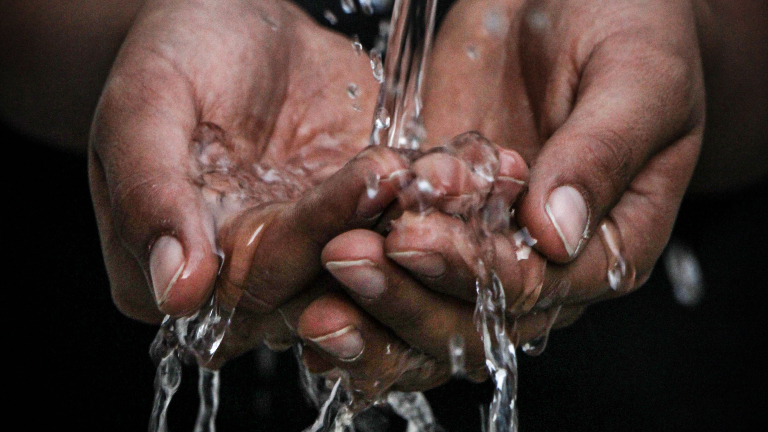“I thirst” These words were uttered by Jesus on the cross. “Let anyone who is thirsty come to me and drink” (Jn. 7:37) Jesus’s words attest to the fact that water is essential for the survival and well-being of all human beings. The very definition of life requires water. Astronomers look for water when evaluating the possibility of life on other planets. Aqua fons vitae (the document recently published by the Vatican) identifies three main dimensions relevant to water and its management: water for human use, water for human activities and water as space.
The World Health Organisation has recognized that safe access to drinking water and sanitization is a human right. Yet, several poor areas have their access to safe drinking water threatened by high prices imposed by the market. Periods of drought remove freely available freshwater sources. Lack of sanitation facilities expose women to sexual abuse and keep girls away from schools. Chemical substances released into the waters from agricultural and industrial practices lead to bioaccumulation inside humans, and can potentially lead to irreversible detrimental health effects. This underlines the importance of investing in sustainable water infrastructure in these countries. It is worth noting that for every dollar invested in water and sanitation, it is possible to save up to 12 dollars in health costs alone. It is everyone’s duty not to waste water and moderate consumption. Wastewater treatment is beneficial and has a role in implementing a circular economy. With everyone’s efforts, resources can be directed to help the poor achieve integral development.
Water is required for numerous human activities, not only for food-related agricultural sectors like irrigation but also in industries such as manufacturing, construction or crafts. There is the risk that unsustainability resulting from exploitation of water sources for such activities can put vulnerable people at risk. An example of this could be the salinization of groundwater, making less freshwater available for poor farmers or an excessive diversion of the flow of a river, which leads to drying up of an area and a change in the ecosystem, with all the implications for nature and any dependent communities. Small producers can end up at a disadvantage if big industries that can produce a lot of pollution do not respect the environment. It is therefore important to implement changes that reduce the effect of pollution especially on vulnerable people and to encourage small, local enterprises which respect the environment. It is important also to strive for peace, dialogue and mediation, in areas where human rights issues are at stake.
Water is also a space; it is the habitat of numerous marine species, a traveling medium for boats and other commercial activities as well as the site of deployment of cables needed for data transfer and communications. In this respect, water as a space presents a number of challenges. It is more difficult to assess the health of the oceans than other land areas. The waters are threatened by increasing pollution, such as the presence of microplastics and sewage and industrial effluent as well as unsustainable fishing methods. Global warming is leading to the melting of the ice caps and an increase in the sea-level. Such changes threaten the lives of the marine ecosystem. Poor countries are unable to patrol their designated areas, and marine crimes threaten the lives of people at sea. Very close to us is the plight of migrants who take to the sea to escape precarious conditions and search for a safe harbor to start a new life. This aspect of water management is quite complex and effective management requires an interdisciplinary approach involving dialogue with a number of stakeholders across the board.
To this day, the Lord still asks for His thirst to be quenched; “I was thirsty and you gave me to drink” (Mt. 25: 35). Effective management of water is the responsibility of all of us, irrespective of our position; a mission entrusted to us humans at the beginning of time by the Lord. May we, like Saint Francis, respect “sister water”, so simple and yet so essential to the life of every human being. May we place the appropriate focus on water when mapping our plans for sustainable development in all aspects of life, be it the personal aspect or the financial, technological or scientific aspects and may we take care not to waste this precious resource, starting from the basic everyday context of the home. Only through a respectful outlook towards water may we really be successfully committed to promote integral human dignity and a development which sustains all.



